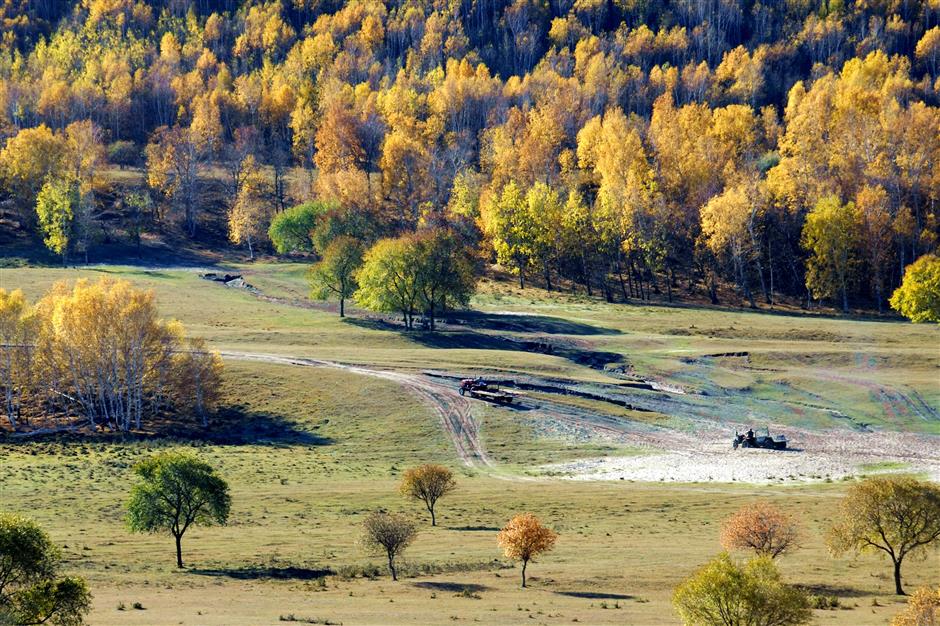Forest workers win top UN award

Saihanba Forest Farm in north China’s Hebei Province. Forest rangers there have won a top UN award for their efforts to restore a degraded landscape.
Forest rangers in northern China’s Saihanba Forest Farm have received a prestigious UN environment award.
On Tuesday, Saihanba afforestation community scooped the United Nations Champions of the Earth Award for its outstanding contribution to restoration of degraded landscapes.
The announcement was made in Nairobi during the third edition of the UN Environment Assembly.
“As an ordinary worker at the farm, I am immensely encouraged by the award,” said fire-lookout Zhao Fuzhou.
“The award should be credited to three generations of foresters,” said Zhao Zhenyu, 78, one of Saihanba’s first foresters, who began planting trees on what was then barren land in the early 1960s.
After decades of hard work, Saihanba is now a vast forest covering about 93,000 hectares and a key ecological shield for Beijing and Tianjin.
The Saihanba region in north China’s Hebei Province almost became a wasteland in the 1950s due to rampant felling of trees, which made it possible for wind to blow sand into Beijing and adjacent regions.
Hundreds of foresters in 1962 embarked on tree planting in Saihanba given the heavy price they were paying due to rapid desertification.
Now the forest in Saihanba purifies 137 million cubic meters of water and delivers half a million tons of oxygen every year.
“Fifty-five years of afforestation efforts tell us that when one generation of foresters after another spares no efforts to improve the environment they will succeed,” Zhao Zhenyu said.
Erik Solheim, executive director of the UN Environment Program (UNEP), hailed Saihanba community for its pioneering innovation saying that cost effective grassroots initiatives could reclaim degraded landscapes. “The work is proof that environmental degradation can be reversed.”
Saihanba has transformed degraded land into lush green paradise, part of a new Great Wall of vegetation that will play a part in helping to protect millions from air pollution and preserving precious water supplies, he said.
Liu Haiying, head of the forest farm, said that restoring degraded forests has capacity to unleash huge ecological, social and financial benefits.
“I believe that as long as we continue to promote ecological civilization, generation after generation, China can create more green miracles like Saihanba and achieve harmony between humans and nature,” said Liu.
The international acclaim has made Saihanba’s foresters feel that they shoulder greater responsibilities in afforestation.
“Winning acknowledgement from UNEP marked a new starting point for our work, and we will redouble our efforts to take good care of the green treasure,” said An Changming, deputy Party chief of the forest farm.
In 2016, the forest in Saihanba stimulated green sectors of the economy, generating an estimated US$15.1 million.
Foresters at the farm are aiming to unleash greater potential of the forest in areas such as tourism, wind power, and carbon trading, bringing more ecological, social and economic benefits.
China bagged three of the six prizes presented to pioneers in environmental conservation during this year’s edition of Champions of the Earth Award.
In addition to Saihanba, bike-sharing company Mobike, which has revolutionized urban mobility, and Wang Wenbiao, chairman of Elion Resources Group that is credited with transforming deserts into pristine oases, also reaped the coveted environmental award.















